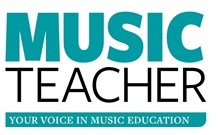Mr Richard Bristow, Director of Music and SMT Secondee, explores an article from Music Teacher Magazine looking at the idea of establishing ‘desirable difficulties’ in the way we use questions and approach tough concepts.
‘For music teachers, there are four overarching strategies that are most useful for introducing desirable difficulties into a music education context – recall practice, interleaving, the spacing effect and elaborate & listen’.
Passey’s impressive article quickly discusses some very useful strategies that musicians, working in the classroom, practice room or (eventually!) on the stage, can employ to help our learners overcome struggles and difficulties in our lessons. At the heart of this is often the ‘teacher as expert’ message which can be problematic to our learners, as they can so often see how effortless we, as professional musicians, can make something, whilst they are struggling with achieving the same technique. So much of this is linked to the way we present information. As Passey argues, it is far better for long-term memory to engage learners by active questioning and quizzes than to simply give them the information, where up to 50% of the information gets lost in future recall.
The recall strategy is something musicians use frequently; whether this is leaning specific exercises like scales or learning entire pieces from memory, as many of our scholars and performers at the WHS Young Musician events do. The huge benefit, as Passey summerises, is that finding learning something from memory difficult helps to reinforce the strength of the memory, ensuring the memory remains active and accessible in the future. The questions we ask are central to this; the learner might find playing from the score easier initially, but needs to be encouraged, through questioning, to see the development of their musical skill as being the ultimate goal.
The discussion on interleaving was also great to read, building on work we as staff have been doing on this in WHS recently, but with the benefit of close subject-specific focus. This involves switching between many different by related tasks, forcing the brain to make links with multiple pathways (‘desired difficulty’) rather than learning something in a ‘massed practice’ way, where the same bar or passage gets repeated over and over, forming a single pathway. I really like the idea of having interleaved practice sessions, where learners switch between playing pieces, exercises and aural skills to see the links between them and develop musical skills. Perhaps switching between instruments would provide even more connection, and I’m now wondering if asking my choir to perform their parts on instruments could really aid their musicianship. Again, the questions we ask form the backbone of creating links and avoiding potential cognitive overload and confusion.
The spacing effect is also another area where musical skill can benefit other subject learning. Long term recall is hugely helped by doing smaller amounts of practice regularly rather than lots of practice once a week. The same is surely true of exercise, and, as we head into Lockdown 2 at the time of writing, is something I am going to try to do more of!
The final passage, titled elaborate & listen, was for me the area that will have the most impact on my teaching, whether in the classroom or on Teams. I really enjoyed the idea of transformative improvisation – where you take an idea and improvise around it – as this is something that is useful to the performer, composer, and musicologist. Extending this by altering the style we perform in (‘try learning this passage of Mozart, but playing it in a Ragtime style’) can also be useful to develop these neurological pathways, and again something that readily transfers from practical performance to composition and the written word. The idea of listening is also vital; when we ask a question, how often do we actually listen to the answer? Sometimes the best question is one that gives the learner space to talk about their experience, vocalising the connections they are perhaps starting to make.
Regardless of the subjects we teach, and how we teach them, the idea of ‘desirable difficulty’ is an excellent one that comes from the questions we ask in our contexts. Celebrating challenge by asking difficult questions and enjoying the journey of learners answering with increased fluency is something to be relished.
Article title: An upward curve
Author: Guy Passey
Featured in: Music Teacher Magazine, October 2020 (accessed through the paper mag, not online)

